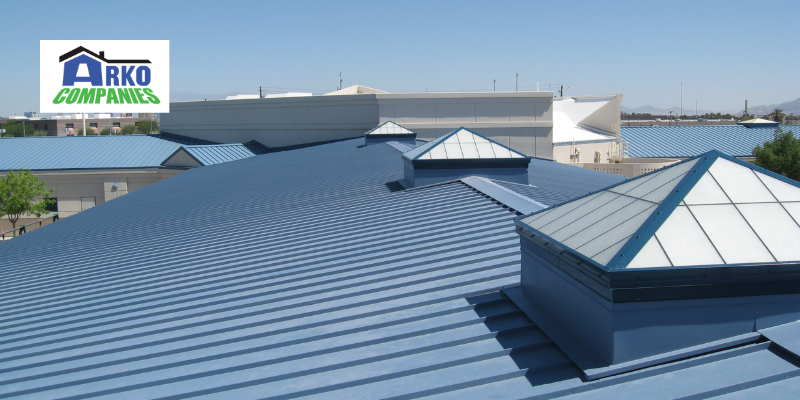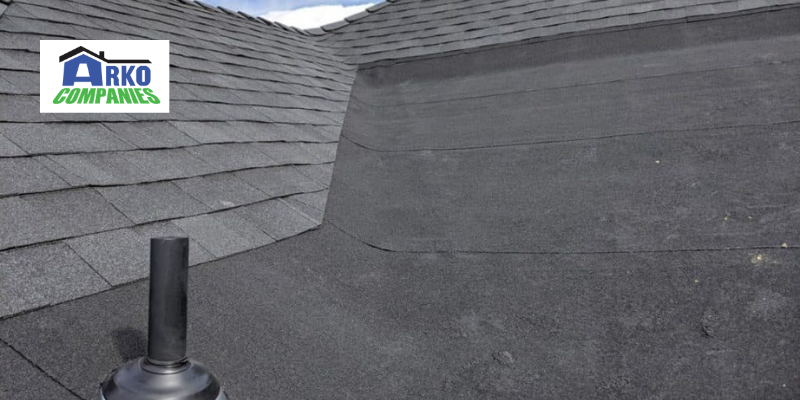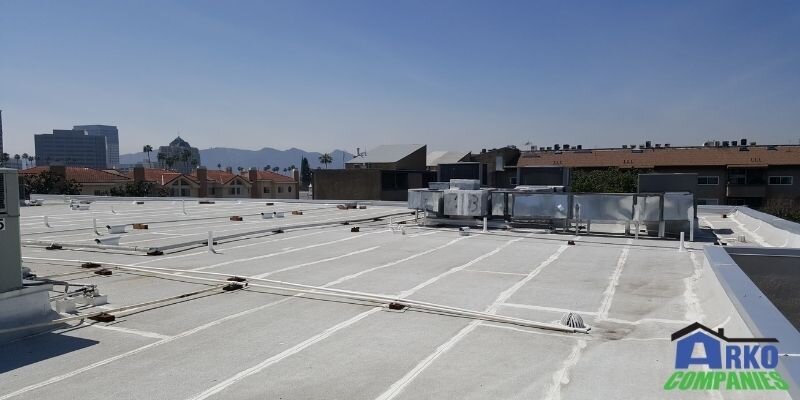When it comes to commercial roofing, there are several types of roofing materials that differ on durability, strength, and average service life.
Here are some of the best roofing materials you can use for your commercial roofing system…
#1 Thermoplastic Commercial Roofing Material:
Thermoplastic is considered one of the most durable and weather-resistant roofing materials available on the market today. Thermoplastic roofing material is made up of material polypropylene, which in turn makes it extremely durable, provides resistance to UV rays, keeps the roof protected from any sort of punctures or wear/tear, and keeps all chemicals and harmful material at bay. This commercial roofing material is good for buildings that might generally emit harmful chemicals or oils. Thermoplastic has strong wind tolerance.
#2 Choosing Built-Up Roof Membrane — Asphalt:
The Built-Up Roofing material is also known as BUR and refers to either Asphalt or a standard tar-and-gravel roof. With this type of commercial roof, there are multiple layers that help the roof stay strong and flexible. The number of layers formed on the roof is entirely based on your choice. You can have two to three layers or more than that based on the budget and your requirements. If you are seeking to have a commercial roof material for a low-slope roof, then it is the best option. This commercial roofing is cost-effective and extremely tough. While choosing the number of layers of the roof, take into consideration the weather conditions of the region. If the roof has to face stormy weather, heavy rainfall, and snow, then you might need more than 3 layers.
#3 Metal Roofing For Commercial Roofs:

Metal roofing is considered one of the most durable as well as affordable commercial roofing materials. If you opt for metal roofing, you can get roofs with different metal materials such as aluminum, steel, tin, or copper. You can even choose galvanized metals to increase the strength and efficiency of the roof. Metal roofs are a preferable choice for commercial roofing because they impart a finished and elegant look to the building. Besides being functional, metal roofs are extremely sturdy and can provide protection from harsh weather conditions. The only limitation of metal roofs is that they are vulnerable to rust, so you need to ensure that they are well-maintained.
#4 Shingle Roofing:
Most often shingle roofing systems are used for residential roof purposes but they function great even when they are used for commercial buildings. Shingles roofs are quite versatile and available in a wide range of shapes, colors, and sizes. Shingle roofs are beneficial in regions which are prone to hail storms and heavy snowfall. If you opt for a shingle roofing system, then you can choose different materials such as slate, ceramic, asphalt, or wood. The best aspect of shingles is that they can be upgraded at any point in time.
#5 Modified Or Customized Bitumen Roofing:

Bitumen roofing is also referred to as reinforced fabrics for roofing. This roofing material is highly preferred by many for commercial roofing systems. This type of roofing is extremely strong because it is attached to the rooftops in the form of a two-layer ply system. This ply layer then adheres to the roofing deck, which improves the stability of the roof and provides immense strength. The only limitation of the customized bitumen roof is that it requires regular maintenance, inspection, and cleaning. If you are doing this, the service life of the roof can be extended and it also enhances the tensile strength of the overall roof structure.
Summary:
There are different types of commercial roofing systems involving different materials, from shingles to metal. It’s good to know a little about each in order to make an informed decision when purchasing a new commercial roof. Professional roofing contractors can definitely help you choose the best commercial roof for your building. With proper installation, care and maintenance, you can expect your roof to do what it’s supposed to, and last a long time.

